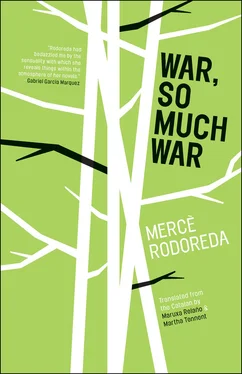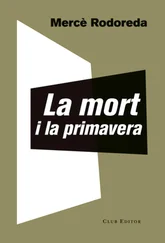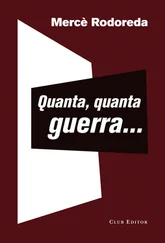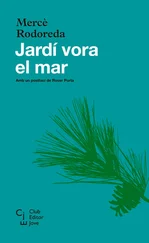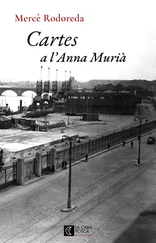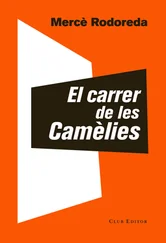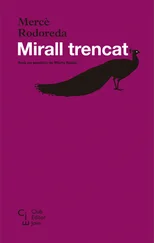Their presence made me uncomfortable. If at least Rossend had let me sit beside him, but he was ignoring me. The boys stretched out on the floor of the van, and I did the same. They stank. They were breathing heavily. From time to time the guy with the thick voice made a strange sound with his teeth. The jolting of the van lulled me to sleep. Why did Rossend have to be such good friends with that fellow with the red scarf who stood up in the trenches, when the others said he was a liar? Exhaustion muddled my mind, and I saw my father waving goodbye at the foot of a floating house with a facing of bright, gleaming tiles and blue lampposts, and moonlight streaming through the leaves, until everything began to spin: Father, Father’s hand, gleaming house, moonlight, blue lampposts, lances of light against the sky. I was asleep when we reached the front.
I LOST MY WAY AND DIDN’T KNOW WHICH DIRECTION TO TAKE, until a carriage road jumped out in front of me, so to speak, and I followed it. It was a fine day, a sunny day, an autumn day as I had never seen before in my short life. Sitting with my back against the trunk of a pine tree, I took several deep breaths. The ground was blanketed with pine needles but I couldn’t contemplate it calmly: The wound in my arm was tender and the bandage was stained with blood. At the entrance to the carriage road I found some rope, almost new and rather long. I’ll keep a piece. I cut it with the penknife my father had given me just before he saw the man walking into the train for the first time. The knife had many different tools: It was a knife, spoon, corkscrew, paper cutter, awl, scissors, and screwdriver. My mother scolded him: It’s dangerous, keep it till he’s older.
At my feet, a row of ants were dragging a beetle belly up; it was wiggling its feet, with nowhere to latch on to. A pinecone landed on my back. I looked up to see where it had fallen from. A flight of birds crossed the sky. The half-dead beetle that the ants were towing was large, black, shiny. Potbellied. I felt the urge to turn it over on its feet and scatter the ants. A cannon shot dispersed the flock of birds. The ants were still dragging the beetle. A second cannon shot went off farther afield, as if borne by the wind. I was standing, on the point of fleeing, when I spotted a boy behind some trees darting by as though possessed; he didn’t seem real. Holding his arm out in front of him, he pointed in the direction of the cannon shot. Before disappearing into the pine trees, he shouted: Go home! For a long, long time I stood there thinking about the boy and what he had said. But I was hungry and hunger distracted me. I crushed the pinecone with a stone; the pine nuts were puny and bitter. I could have eaten a horse. For hours upon hours nothing had entered my stomach except a few clusters of green grapes and water from the river down below. My shoulders hurt from unloading sacks of lentils and potatoes and swinging an axe to chop wood for the soldiers’ kitchen. My wound ached. Everything ached.
Rossend and his friends disappeared right away. Juli-Juli, the plumber who washed pots and plates with me in the kitchen, told me they had been taken away during the night to build trenches in some village. And he said to me: What are you doing here, so young? Beat it! If you can.
The entrance to the ant nest was blocked by the beetle’s carapace, its legs scarcely moving now, and the ants scurried about like mad trying to find a way to maneuver it inside. I tripped on another piece of rope. The first scrap I had cut was in my pocket. My sole possessions were my father’s knife and that bit of rope. A sloping path ran across the carriage way. Standing between the road and the path, I chose the latter because it was narrow, the weeds around it tall. One final cannon shot rang out, even farther away than the second one, and at that moment I heard a man’s voice giving orders: Jump, you fool! Jump!
A LARGE SACK SUSPENDED FROM A TREE WAS SWINGING BACK AND forth, and from it emerged the head of a man with a straight, taut rope behind it. His face was white, his tongue black, his lips purple. By the tree, just beneath the hanged man’s feet, was a rock; I climbed on it and cut the rope. The hanged man crashed to the ground and hit his head, frightening me so much that I was sure I had killed him instead of saving him. He was young, with black hair and bushy eyebrows. Just as I was thinking that he had surrendered his soul to God, he opened one eye and immediately closed it again. He hadn’t the strength to hold my gaze. After a while he sat up halfway, and I helped him as he struggled to climb out of the sack. He snapped at me angrily, with a husky voice that seemed to come from beyond the grave: Why did you cut the rope?
For a long time — who is to say how long — his breathing was belabored. Give me some water. . I’m suffocating. . I rushed down to the river and, using a jar I found in his haversack, brought him some water; I held his head with one hand and poured water down his throat with the other. He coughed with every attempt; the effort was wearing him out, and finally his head dropped to the side. All of a sudden he revived. If I climbed into the sack to hang myself it’s because I wanted a shroud covering me when I died, to keep the vultures from picking the flesh off my bones if my body wasn’t found in time to be buried. And what about your head? I asked. My head, he said, they can have it. For all the good it’s done me. . He grasped his neck with both hands and tightened his grip. Maybe this way it won’t hurt so much. Pour some more water down me. You look hungry. There’s some bread in my bag. I can’t even swallow my own saliva. My tongue is swollen. Keep me company. He had me lie down beside him and we covered ourselves with the sack. As I lay there, half-asleep, surrounded by sylvan scents, I could hear the dull sound of a far-away conversation. I no longer remembered that I was sleeping next to a life I had saved. I would travel the world, I would help others, I would save lives. The stars above us seemed to be ushering away the night, and yet it would be a long time before morning dawned.

. . I made this sack out of four sacks I stole from the mill. Lying with his face to the sky, the hanged man spoke as if in a dream. From time to time he turned his head and looked at me. One whole day it took me to undo the seams and resew them in a different shape, using a sack needle, pushing the string through the holes. I made one sack out of the four. I left two sections unsewed so I could stick my arms through, tie the sack to my neck and slip on the rope collar with the slipknot. The hanged man began to weep with sadness; I gave him a good slap on the back to stop his crying and stood up. Don’t leave me, don’t leave me. . Just when I was resolved to snatch Ernestina away from her scoundrel of a husband, she left me. Went back to him! Her husband came looking for me one day and he broke down. He knelt and confessed that he was lost without Ernestina. Promise me you won’t take her from me. . Give me some water. I told him Ernestina and I had parted ways some time before. And her husband said, she must have someone else then. We embraced and walked out into the street. . when I met her she was wearing a red dress and had a daisy in her hair. . we went from tavern to tavern; in every tavern, a swig. And then, surprise: At Papagai’s, I met Faustina. He coughed, his voice growing hoarser as he spoke. And it was as though Ernestina had never existed. He lay there a while without opening his mouth, and when he said, I curse the day she let me enter her house, I thought his strength had given out, but he went on. The same day Faustina let me in her house and allowed me to kiss her behind the ear, she coiled around me like a snake. Straight away I explained it all to Ernestina’s husband, and he told his wife. To Faustina I confessed that I had loved Ernestina and that her husband and I were like brothers. . and I still don’t know what happened, but shortly thereafter the four of us took to frequenting the taverns together: Ernestina friends with Faustina, Faustina friends with Ernestina’s husband, and all three of them latching on to me. Not an hour went by that I didn’t feel watched, spied on, my steps shadowed. It was me against the three of them. . Them against me. Ernestina was defending Paulina one night when the four of us were walking down a street whose name I don’t recall. . I asked the hanged man who Paulina was and, after giving it some thought, he said he had misspoken, he had never known any Paulina and he meant to say Faustina, not Paulina. . and I just couldn’t take that kind of life any more, he continued. None of us made love, we had only reproaches for each other. I hated that dependency and yet I couldn’t live without it. Until finally the war came and I enlisted right away in hopes of saving my soul. But the war has finished me. Emptied me of everything, surrounded me with death and blood. . I died some time ago; why should I wish to breathe and possess a body that I despise and that persistently demands sleep, food, and sorrow? I mean joy, it asks for joy, even if just a little, but finds only sorrow. . Why, why did you unhang me? He leaned in to punch me and fell backward as if I had punched him instead. I wrapped him in the sack and dragged him behind the rock, near the tree where he had hanged himself. Little by little I covered him with stones. I couldn’t dig a hole to put him in because I didn’t have a hoe, or a pick, or a mattock.
Читать дальше
